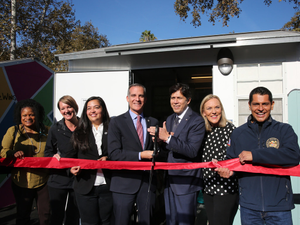Veterans Are Getting Royally Screwed by Government Budget Cuts

Photo by Fibonacci Blue | License
Our nation’s heroes are getting the short end of the stick, and it’s time we talk about it. The Trump administration is pulling a classic move by slashing federal jobs under the guise of “efficiency” - but what it really means is veterans are losing critical support services that keep them housed, healthy, and hopeful.
The numbers are brutal: about 16,000 probationary workers have been fired, with an estimated 200,000 more potentially on the chopping block. And guess who makes up one-third of the federal workforce? Veterans. So yeah, this is basically a direct attack on those who’ve sacrificed everything for our country.
The Human Cost of Budget Cuts
Take Andrew Torosian, a Coast Guard veteran who was helping unhoused veterans find permanent homes. Despite stellar performance reviews, he was abruptly fired via email. His story isn’t unique - it’s happening to veterans across the country who are watching support systems they desperately need get dismantled.
Mental Health Matters
Veterans like Gabriel Iturbe, who spent nearly two decades in military law enforcement, understand how critical specialized mental health support is. After facing constant danger searching for bombs and IEDs, he knows firsthand how crucial VA mental health services are for processing trauma.
The Privatization Problem
The government’s solution? Privatize veteran care. But studies consistently show that private providers simply can’t provide the nuanced, trauma-informed care that VA clinicians offer. It’s not just about treating symptoms - it’s about understanding the unique experiences of those who’ve served.
As veteran Bruce Carruthers bluntly put it: “You can’t balance the budget on the backs of veterans”. These aren’t disposable humans - they’re people who answered the call of duty and deserve comprehensive, compassionate support.
AUTHOR: kg
SOURCE: San Francisco Public Press




















































